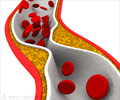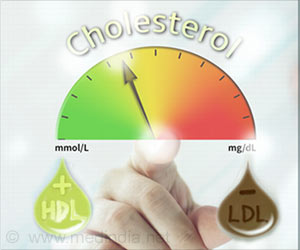Researchers say that circulation of cholesterol is regulated in the brain by the hunger-signaling hormone ghrelin.

"We have long thought that cholesterol is exclusively regulated through dietary absorption or synthesis and secretion by the liver," says Tschöp. "Our study shows for the first time that cholesterol is also under direct 'remote control' by specific neurocircuitry in the central nervous system."
The hormone ghrelin inhibits the melanocortin 4 receptor (MC4R) in the hypothalamus and is important for the regulation of food intake and energy expenditure. Tschöp and his team found that increased levels of ghrelin in mice caused the animals to develop increased levels of blood-circulating cholesterol. This, the authors say, is due to a reduction in the uptake of cholesterol by the liver.
The research team next tested the effects of genetically deleting or chemically blocking MC4R in the central nervous system. This test also yielded increased levels of cholesterol, suggesting that MC4R was the central element of the "remote control."
"We were stunned to see that by switching MC4R off in the brain, we could even make injected cholesterol remain in the blood much longer," says Tschöp, a researcher at UC's Metabolic Diseases Institute.
Cholesterol is a type of naturally occurring fat needed by the body, but too much cholesterol can lead to atherosclerosis, a buildup of plaque in the arteries. There are two types of cholesterol in humans―HDL (high-density lipoprotein) and LDL (low-density lipoprotein). LDL is considered the "bad" kind of cholesterol responsible for plaque buildup. HDL is the "good" kind that, in high levels, can prevent atherosclerosis.
Advertisement
Due to the differences in the make-up of mice and human cholesterol, Tschöp and his team say more work is needed before their studies could be directly applied to humans, but they say their finding adds to a growing body of evidence for the central nervous system's direct control over essential metabolic processes.
Advertisement
Source-Eurekalert













